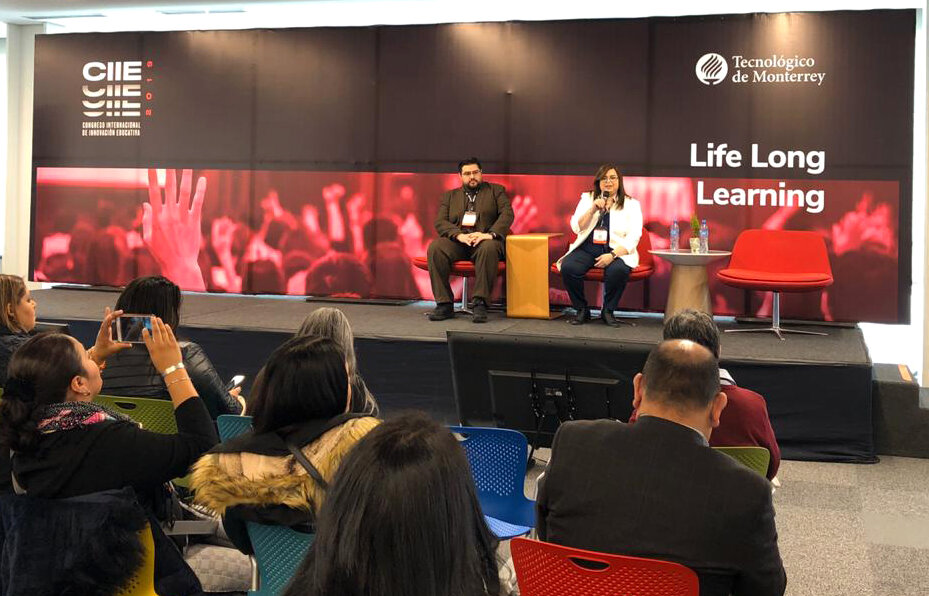Seven Technology Trends for Education
Reading Time: 2 minutes
In this article, you will find tech trends for learning and their impact on education. This information was presented in the 6th International Conference on Educational Innovation at Tecnológico de Monterrey.

Incorporating emerging technologies into the classroom is a challenge, but it is also a way to reinvent your teaching practice and stay up-to-date. At the 6th International Conference on Educational Innovation (CIIE) of Tecnológico de Monterrey, Berta Saldivar and Irving Hidrogo, representatives of the Academic Vice-Chancellorship and Educational Innovation, presented the principal technological trends for learning, i.e., digital credentials, blockchain, chatbots, intelligent workspaces, affective computing with artificial intelligence (emotional AI), immersive workspaces, and collaborative virtual reality.
“Students dream of doing different, disruptive projects that enable them to potentiate their learning process.” – Berta Saldivar –
Tec de Monterrey’s Mostla Laboratory was created to support teachers and students in the adoption of these technologies. It is a space where the curiosity of teachers and students is stimulated to integrate emerging technologies that add value to their learning strategies and their projects. In this lab, one explores and works with technologies that have a highly disruptive potential for learning and for solving human problems.
The application of these technologies in the classroom has led to the evolution of services such as those provided by the Tec Library, which has a VR Zone space, where virtual reality stations offer an immersive experience using applications that students currently use in their classes.
Technologies that are transforming education
-
Digital credentials. These are diplomas and granular micro-credentials that can be shared easily but require going through a process of verifying authenticity. There are currently several third-party vendors that already offer this service.
-
Blockchain. A distributed database that is not governed by any entity and functions as a global ledger where digital transactions are recorded. This ensures the authenticity of the recorded information, facilitating the creation of trust relationships among users.
-
Virtual assistants (Chatbots). A virtual assistant is a conversational voice or text interface that can be used in a variety of ways, such as in customer services, human resources, training, and process consulting.
-
Intelligent workspaces. The idea is to leverage the digitalization of physical objects through the Internet of Things (IoT) to offer new ways to work, reserve resources, coordinate facility services, and share information. It aims to increase efficiency and effectiveness. This creates agile work environments that add value to the employee experience.
-
Affective computing with artificial intelligence. Here, the user’s emotional state is analyzed through computational vision, voice and audio, sensors, and specialized software using artificial intelligence. This can detonate real-time actions in response that seek to customize the environment and the services that are provided.
-
Immersive workspaces. These are collaborative work ecosystems whose main engines are virtual, augmented, and mixed reality. They are accessed through spatial viewers that offer a solution for meetings in which information and files are naturally available, thus providing more in-depth solutions.
-
Collaborative virtual reality. Teachers and students are in a virtual space designed specifically for the classroom where interaction, collaboration, and active learning take place, providing learning experiences in real-world applications.
CIIE is an annual event that has been hosted by Tecnológico de Monterrey since 2006. It aims to encourage and facilitate experimentation and innovation among teachers, managers, entrepreneurs, and all those interested in education. It is an international event in which you have the opportunity to interact with experts and learn about the best experiences in educational innovation.
This article from Observatory of the Institute for the Future of Education may be shared under the terms of the license CC BY-NC-SA 4.0 
)
)

)